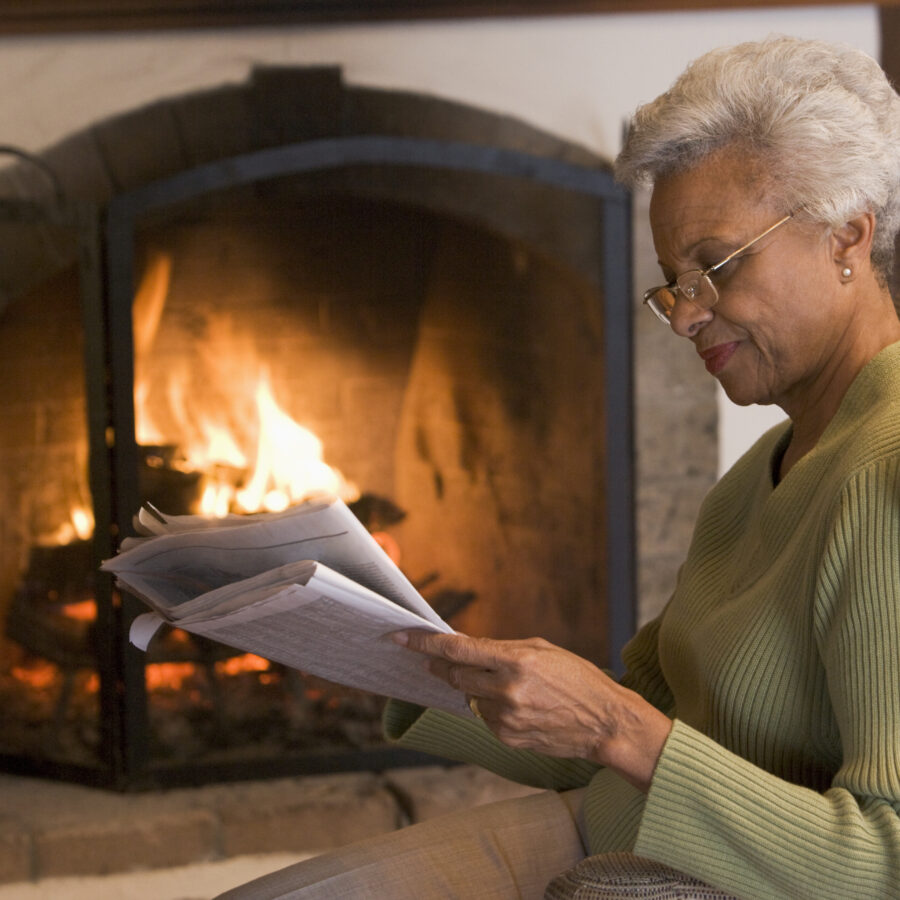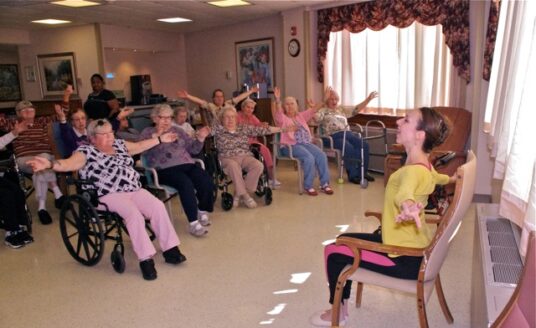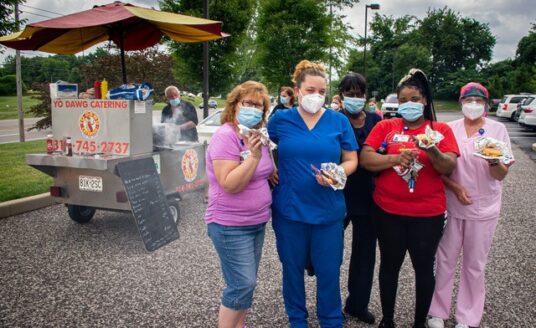Did you know that home fire hazards actually increase during cold weather seasons? Devices that we have not used for months are called into service to heat and power our homes. In addition, holiday decorations may make our homes festive, but present an added risk of potential fires.
Statistically, seniors are far more likely to be seriously injured or lose their life in a home fire as compared to their younger counterparts. This could be due to the loss of sensory abilities, such as smell, touch, vision and hearing (all extremely important in identifying the presence of a fire), as well as a loss of mobility. Also, cognitive decline or depression can reduce a person’s reaction times, and therefore place seniors at a higher risk for causing a fire.
Fire-Causing Household Items
Seniors and adult children should be aware of these common household items that could potentially cause fires in the home:
- Power tools
- Overloaded power boards
- Candles
- Flammable chemicals
- Washing machines and clothes dryers
- Cigarettes
- Cooking appliances
- Heaters
- Christmas trees
Winter Fire Hazards & Safety Tips
Fortunately, there are easy ways to augment senior fire safety, including:
Changing the batteries in smoke and carbon monoxide detectors every fall and spring when changing the clocks for Daylight Savings Time. It is particularly important to have working carbon monoxide detectors if you have a gas heater.
Making sure all fire extinguishers in the home are fully charged and in working order at the same time you check the detectors. And make sure everyone in the house knows where the fire extinguishers are located in case of emergency.
Having the central heating system cleaned, inspected and serviced by a certified HVAC contractor. It’s important to do this once a year to keep everything in working order.
Having your chimneys checked. A dirty chimney can prevent harmful gases from leaving your home or cause a chimney fire. Even if you don’t use your fireplace regularly, you should have the chimney inspected once a year and cleaned as necessary. Animals may build nests in the flue, or there may be other types of deterioration that could make the chimney unsafe to use. Gas-burning chimneys should be checked as well for nests or other debris.
Other fireplace tips:
- Use fireplace screens to keep sparks and fire debris inside the fireplace.
- Do not use gas or any other accelerant to start a fire in the fireplace.
- Do not leave a fire unattended.
- Keep all combustible material at least three feet from the fireplace.
- Have all natural gas fireplace connections and lines inspected before you use them each year.
Space heater safety precautions:
- All space heaters should be surrounded by at least three feet of empty space. This includes keeping them away from furniture and drapery.
- Never place any clothing or other objects on a space heater to dry.
- Turn off space heaters when leaving the home or when retiring for the night.
- Do not store combustible materials near a space heater.
The proper use of space heaters is especially important as they are the primary cause of home fires, followed by fireplaces.
Holiday Decoration Fire Hazards
Lit candles are beautiful during the holiday season, but they are also a major source of house fires (approximately 8,000 fires per year in the U.S.).
According to the National Fire Protection Association (NFPA), cut Christmas trees are wonderful to look at, but as they dry out over time, they become more flammable. That’s why it is important to keep them watered daily.
The NFPA also recommends the following Christmas tree precautions:
- Place the tree at least three feet away from any heat source.
- Make sure the tree is not blocking an exit, such as a door or window.
- Ensure decorative lights are in good working order.
Furthermore, don’t put holiday decorations near open flames or heat sources, and consider glow sticks or battery-operated candles.
Generators. Portable generators are great for emergency use, especially in cold weather. They do, however, carry the danger of carbon monoxide poisoning, electrical shock, and fire. The Occupational Safety and Health Administration (OSHA) provides a fact sheet detailing how generators should be connected to a home, how they should be used, where the generator should be placed, electrical safeguards, how to use and protect a generator from the elements, and under what conditions it should be powered off.
Other sources of electrical fires include long-term use of an extension cord, as well as old wiring (more than 40 years old) that may need to be updated. Old wiring can become overtaxed by the many electrical appliances it was not designed to power (an electric heater is an example of a cold-weather addition to the strain on your electrical system). A couple of signs to look for are charred or discolored outlets or a circuit breaker that keeps tripping. Call an electrician if you spot any signs of faulty wiring.
Escapes and Preparations
It is very important to make an escape plan, and rehearse it. The plan should take into account the abilities of the senior.
Keep glasses, hearing aids, keys and a phone near the bed at night. The NFPA advises sleeping in a room on the ground floor in order to make escapes easier. The majority of senior injuries and death due to a fire occur in a bedroom.
Other escape plan necessities:
- Become familiar with two ways out of every room.
- Remove any items that block the way out of a room.
- Make family, friends and neighbors aware of your escape plans.
- Make sure all doors and windows in your home can be opened easily.
- Keep a phone nearby, along with emergency phone numbers (especially important if you should become trapped in a room).
Seniors who live in a multiple occupancy building should meet with the building manager about fire drills to make sure they are included.
Tips for Seniors with Disabilities
For those seniors who may not be able to detect a fire or move to safety quickly, it is imperative that they are alerted as early as possible. Smoke detectors should ideally be installed on every level in the home. If hearing is a challenge, there are smoke detectors with a vibrating pad and a flashing or strobe light. The strobe light has the added benefit that neighbors may be able to see it and call for emergency help.
If they use a wheelchair, walker or cane, those devices should be kept nearby at all times. Make sure doorways are wide enough to accommodate these devices. Also, consider installing an exit ramp to avoid being forced to navigate outside steps in an emergency situation.
Seniors with disabilities should contact their local fire department ahead of time to apprise them of any special needs. The fire department may also suggest escape plan ideas, and perform a home fire safety inspection if requested.
For more home safety tips, check out our Senior Home Safety blog.
Want to find out more?
If you’d like to stay up to date with Bethesda Health Group, sign up here to receive our blog and newsletters!
"*" indicates required fields
Related Articles
Want to find out more?
If you’d like to stay up to date with Bethesda Health Group, sign up here to receive our blog and newsletters!
"*" indicates required fields



